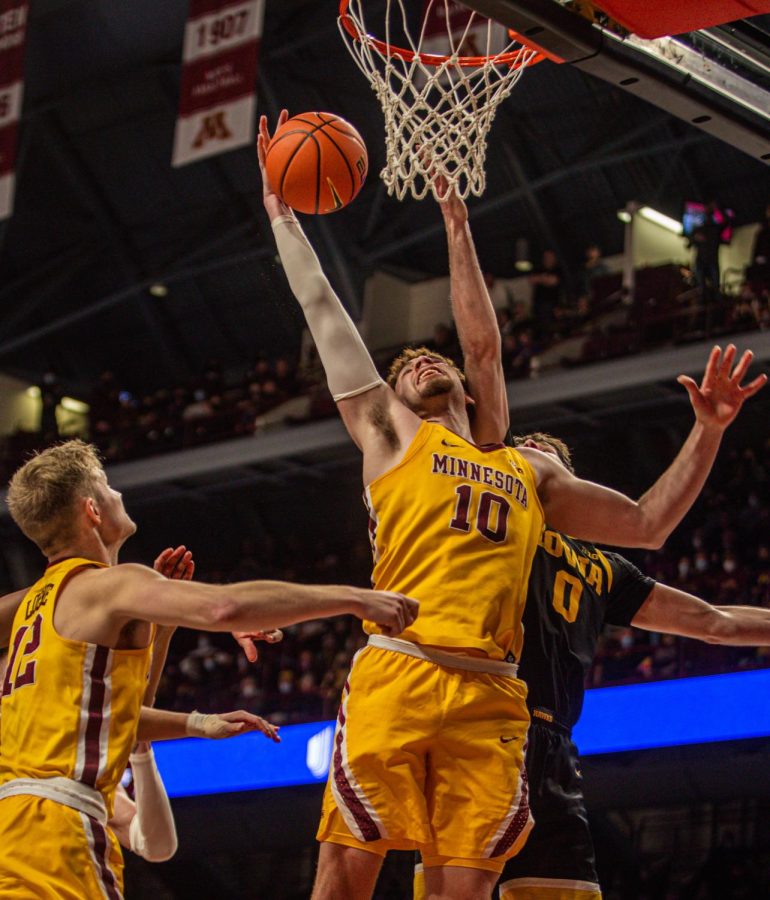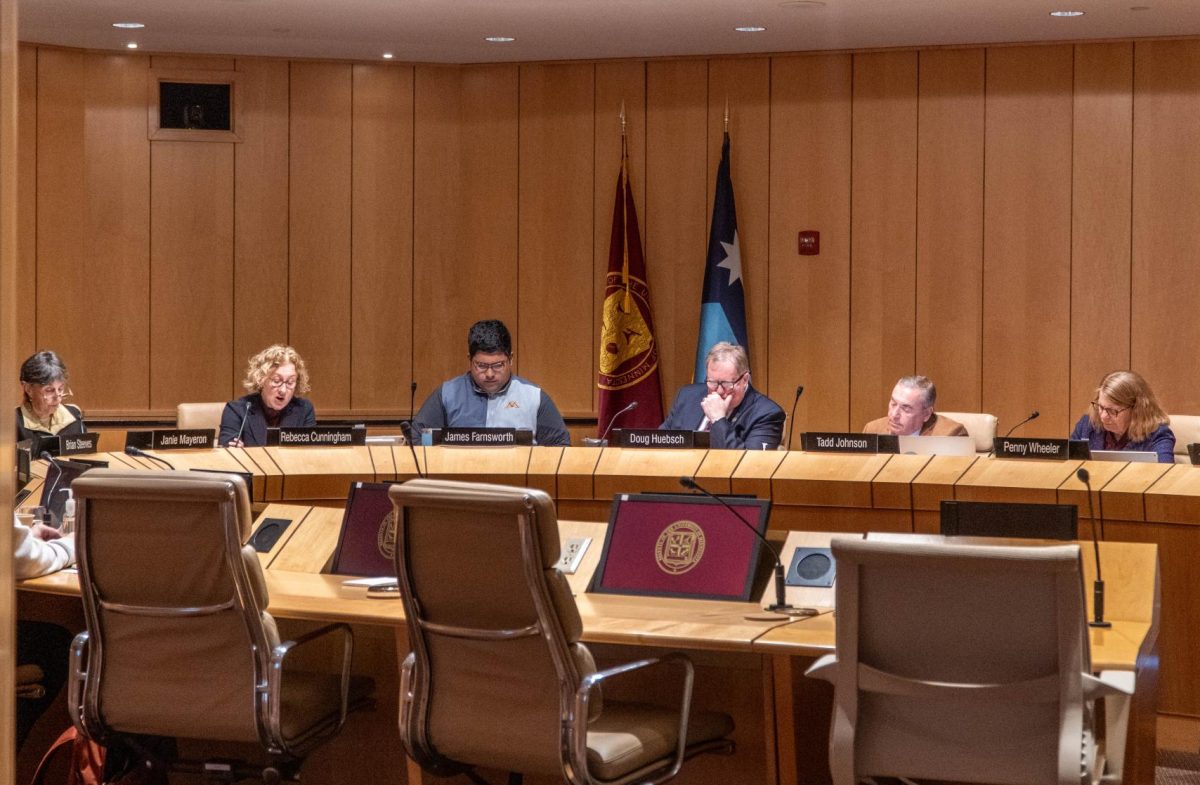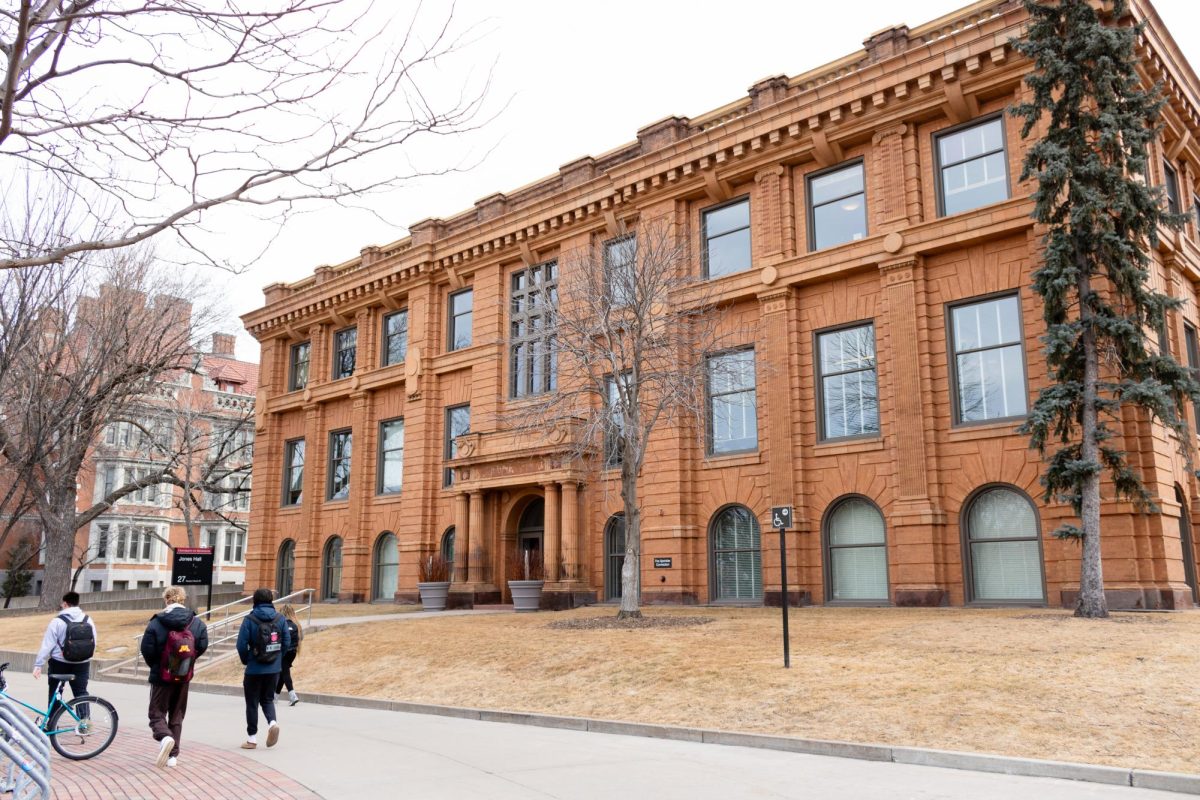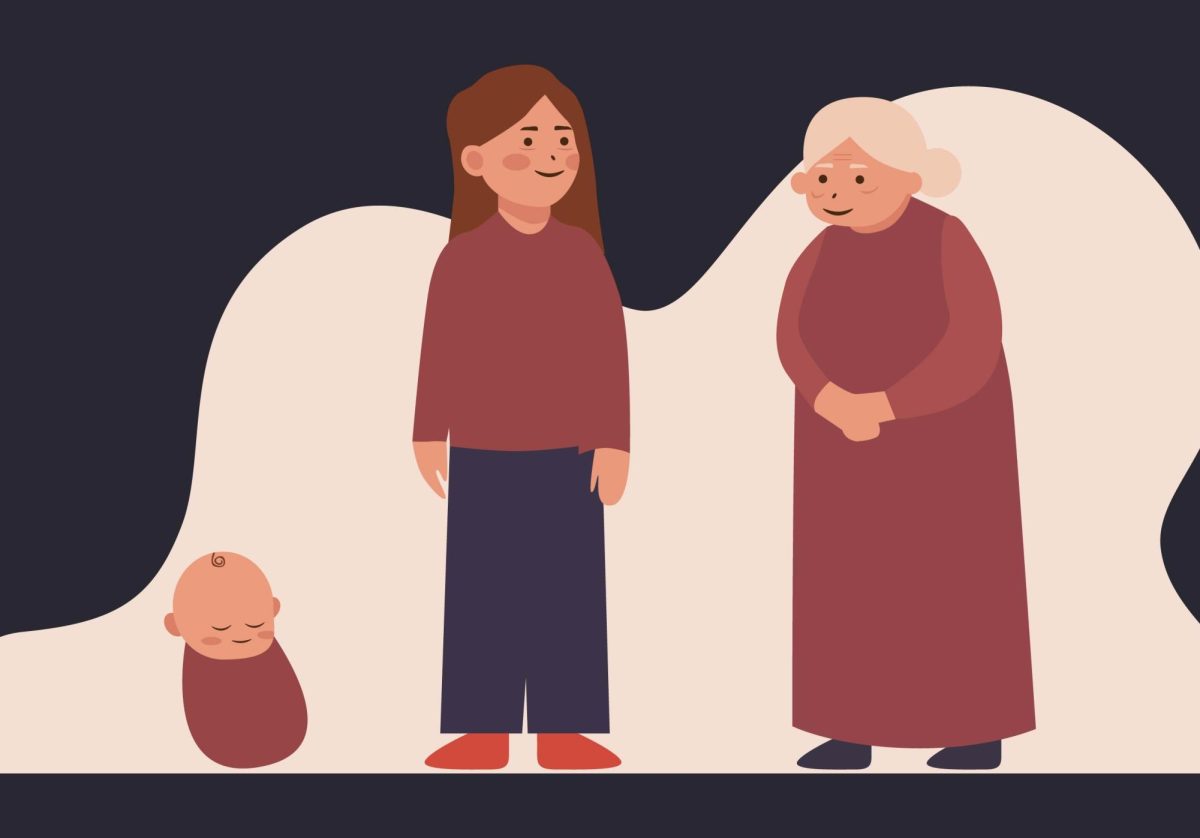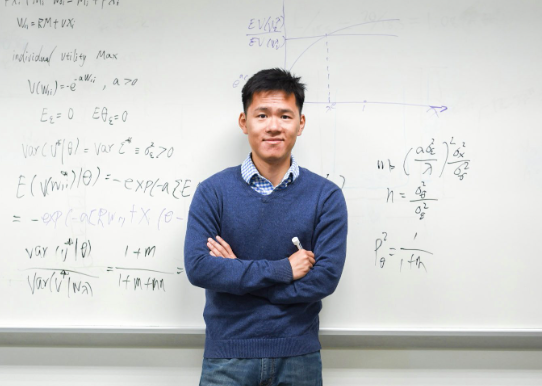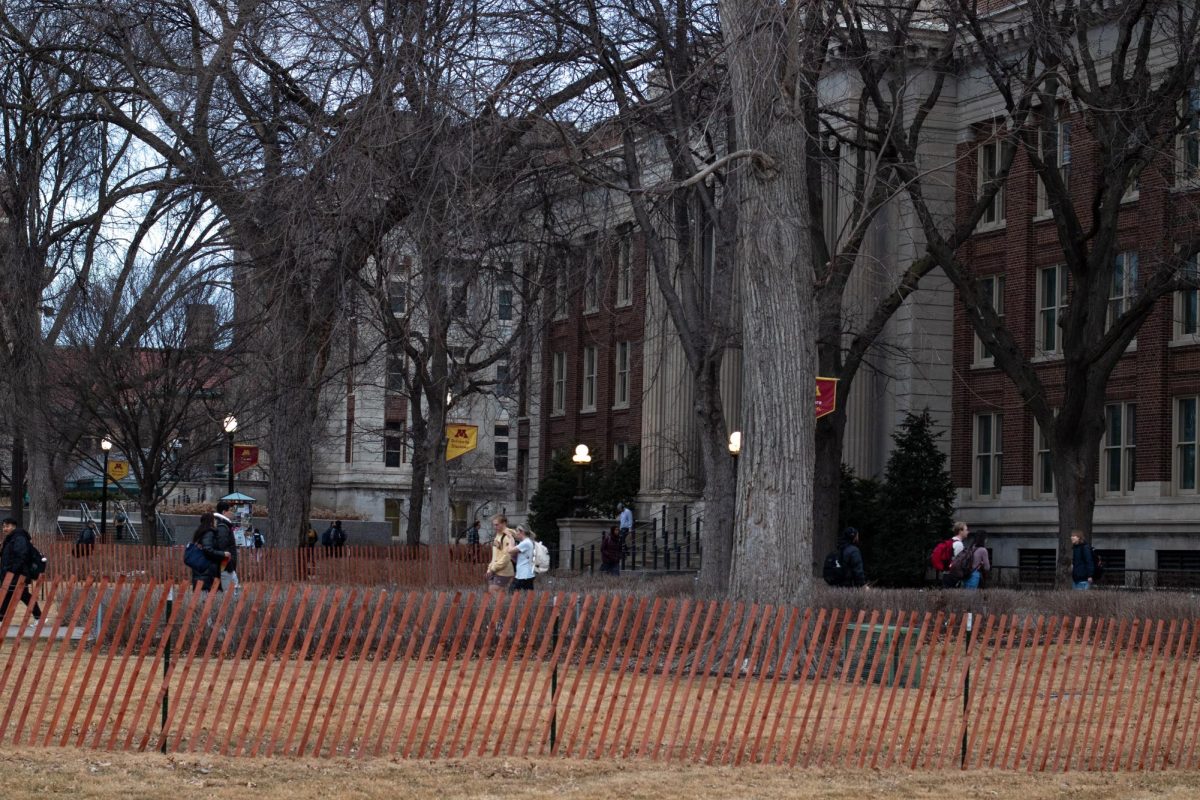“It’s a way of getting work done real cheap.”
That’s what Cherrene Horazuk, president of the American Federation of State, County and Municipal Employees’ (AFSCME) Local 3800 Union for University of Minnesota clerical workers, said as she talked about why the University readily uses student workers’ labor to run its departments.
Horazuk is the aid to the Dean of the University’s Humphrey School of Public Affairs and advocates for a change in the minimum wage for municipal employees and University student workers.
“The reality is, I think there are many departments who really look at hiring student workers in order to save as much money as possible,” Horazuk said.
As campus buzz grows around raising the University’s $10.08 minimum wage to match Minneapolis’ minimum wage, workers have expressed feeling exploited by the University because of the amount of responsibility put on students’ shoulders, often for low pay.
“I didn’t know if I was going to be able to afford groceries at any given week.”
Student workers often endure financial stress because of low pay from University jobs combined with Minneapolis’ high cost of living. Some student workers said they had to go on government assistance to be able to afford groceries on their University wage.
Akadia Johnson graduated from the University last spring and worked as the head house manager for the University’s Rarig Center. Johnson said although they loved their job on campus, the low pay and irregular hours caused increased anxiety.
After two years of working in their position, Johnson said their office hours were reduced from five hours to two hours which affected pay.
“Once my office hours got cut, so it was two hours a week, I was under so much financial stress,” Johnson said. “I didn’t know if I was going to be able to afford groceries at any given week.”
Erin Brockmeier, a University second-year student, held a similar sentiment. Brockmeier currently works as an office assistant (OA) at a residential dorm and had to cut down on food because their University wage is not enough to afford groceries.
Brockmeier added they would like to see the University support student workers by creating more affordable food initiatives on campus.
“If you look at the prices of anything in the campus marketplaces, they are kind of insane. So affordable food costs would be a huge thing for me at least,” Brockmeier said. “We live in a food desert more or less.”
Brockmeier was one of many students and staff picketing outside of Boynton Health on Tuesday, Oct. 19 to demand the University leadership acknowledge the sacrifices essential health care workers made during the pandemic as they renegotiate their contracts.
University alumnus Adam Drabek, a College of Liberal Arts 1001 teaching assistant, said he pursued the TA position because he was studying education and thought it would be a good opportunity to work with students and run a classroom. Reflecting on his experience as a TA, Drabek said the low pay and work place experience did not compensate for the amount of responsibility coming with the position.
Throughout his experience as a TA, Drabek said he attended extensive unpaid training sessions in addition to his work hours. At the end of every month, he received a $500 stipend that totaled to around half of what he would have earned from the University’s hourly minimum wage.
“I did the math,” Drabek said. “Let’s say it’s fifteen weeks, four hours a week, so 60 hours [of paid work]. Plus 40 hours of unpaid training, if you include welcome week and weekends. That’s five dollars an hour.”
Since the University is a land-grant institution, Horazuk argued, it is able to avoid paying Minneapolis’ minimum wage despite the majority of campus residing in Minneapolis.
“Because the University is a land-grant institution and they are viewed as kind of a separate entity, they have a different relationship with the state and the legislature,” Horazuk said. “The University has been able to convince the legislature that laws such as the minimum wage laws and statutes in Minneapolis don’t apply to the University.”
Student and municipal workers’ protest and raise awareness
Katie Daly, a University fourth-year and student worker, has worked three student jobs throughout her studies at the University. She said the position she felt most exploited in was her role as a TA.
“I TA’d a couple of classes and in that I felt more exploited,” Daly said. “The professors would put a lot more responsibility [on TA’s], especially during COVID.”
Daly and her roommate started an online petition about a month ago in light of Minneapolis enacting a new minimum wage of $15 that asks the University to follow in Minneapolis’ footsteps. The petition now has over 760 signatures.
“We are going somewhere that we can’t afford. We are getting paid below Minneapolis standard minimum wage. We have student loans now,” Daly said. “That’s kind of what inspired the two of us to write it.”
According to Jake Ricker, the University’s director of public relations, the $10.08 minimum wage is determined based on guidelines set by the U.S. Department of Education, although many student jobs pay more than minimum wage depending on factors such as the time worked in a position and the amount of industry knowledge required upon being hired.
Other benefits of student employment, according to Ricker, are the workplace experience and valuable training gained in a position, the networking opportunities, and the ability to have a real-world application of skills.
Along with student-led efforts to raise University minimum wage, University essential health care workers are asking for recognition for their continuous work through the pandemic, despite the risks.
Deborah Pavlica, the president of AFSCME’s Local 3260 union for University health care workers, said the University’s leadership has been unresponsive to the demands of essential workers as they renegotiate their contracts, despite work by essential workers to keep University facilities running during the pandemic.
Pavlica works at Boynton as a licensed practical nurse. She and other essential health care workers kept Boynton running through the pandemic for a hazard pay of two dollars an hour, according to Pavlica.
“[The University] had us come out and only gave us two dollars an hour,” Pavlica said. “So my life is worth sixteen bucks a day for like three months.”
Although Pavlica works on a yearly salary, she said the additional two dollars an hour in hazard pay provided by the University did not atone for the high risk of COVID-19 that essential workers endured, especially at the beginning of the pandemic because of more uncertainty of COVID-19 transmissibility and what safety precautions should be taken.
Essential workers also had to pay more for services during the pandemic. This included the costs of daycare for children, and commuting when some public transportation options were shut down at the start of the pandemic, which the hazard pay did not accommodate for, according to Pavlica.
Essential and student workers both expressed how they would like to see the University start valuing its workers instead of profits.
Ginger Beezley is in her second semester at the University and has worked two different on-campus jobs so far. Beezley said the challenges of her job did not stem from on-duty managers, but the perceived lack of involvement and leadership from the University.
“A common theme of working at the U is, not necessarily the OA directors [because] they are doing the best they can, is the lack of support from higher up,” Beezley said. “I guess they have something better to do than worry about people who actually work at their university, they just have to think about making money.”
More recently, University students have mobilized to raise the minimum wage. Cassidy Drummond, a past member of the Minnesota Student Association (MSA) and University alumna said MSA passed a resolution around raising the minimum wage in the 2019-20 academic year, but the pandemic hindered their progress around this issue.
While studying at the University, Drummond worked for the University’s Housing and Residential Life and said she believes that the University is unwilling to support students through mental health struggles.
After seeing the treatment of student workers struggling with mental health and the lack of flexibility in student worker positions in accommodating academic schedules, Drummond said she thinks it is discouraging that the University, in her opinion, is not addressing the needs of students.
“Housing very much preaches that they care about their employees and prioritize self-care, but when it really comes down to it, when it comes to actual action, they really have shown that they don’t care,” Drummond said.












